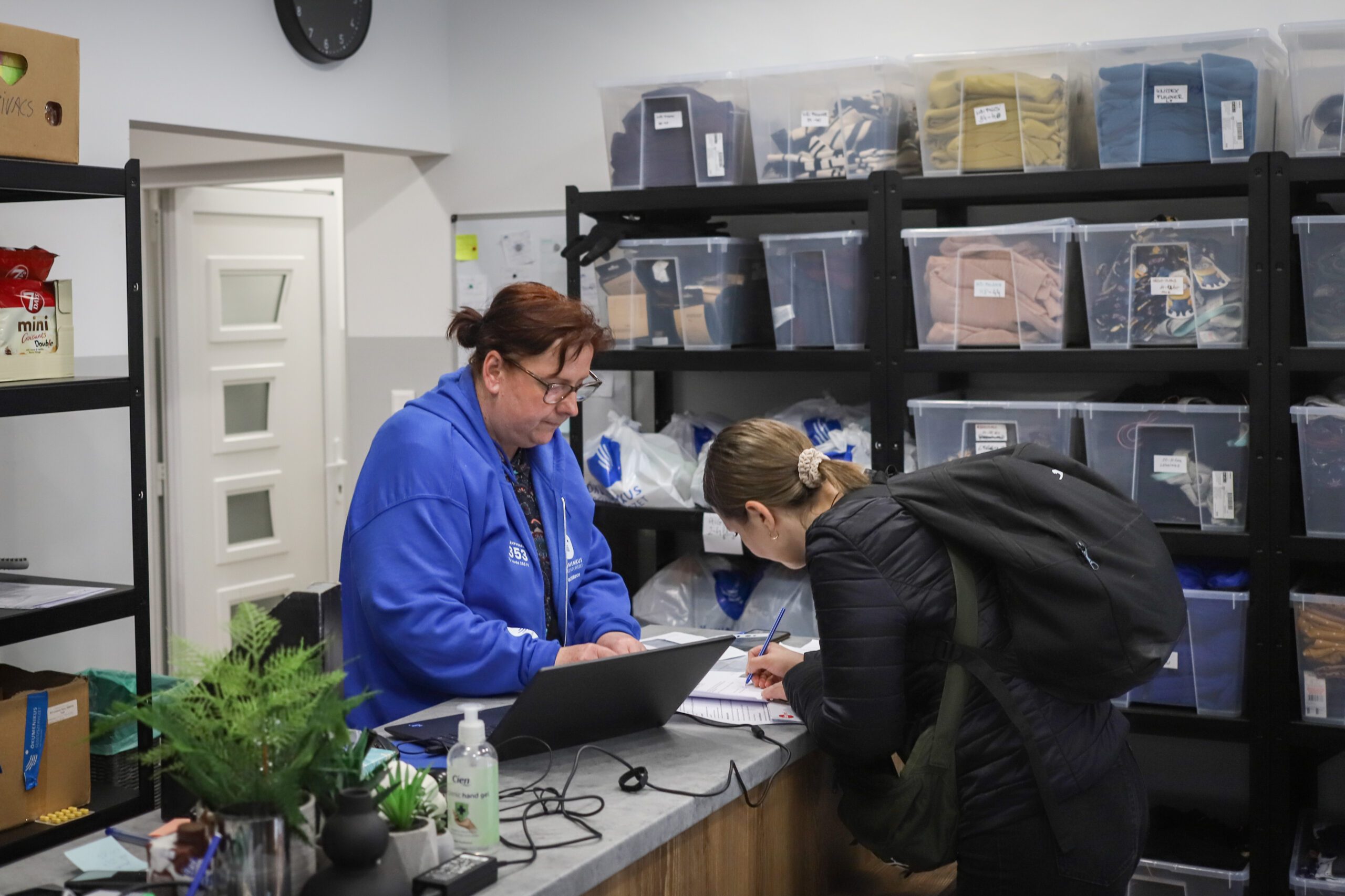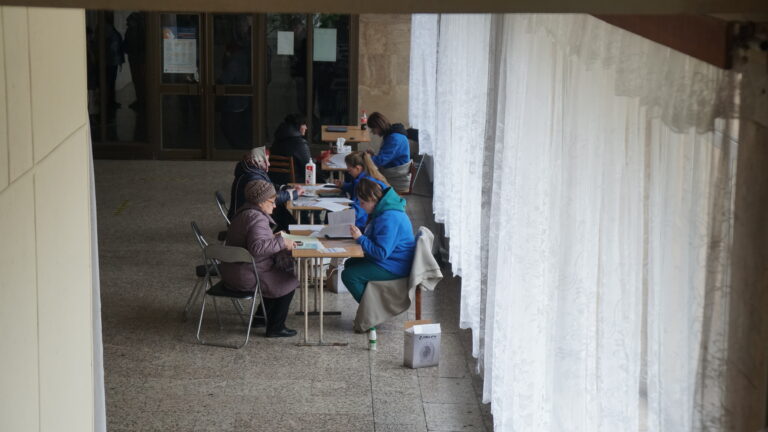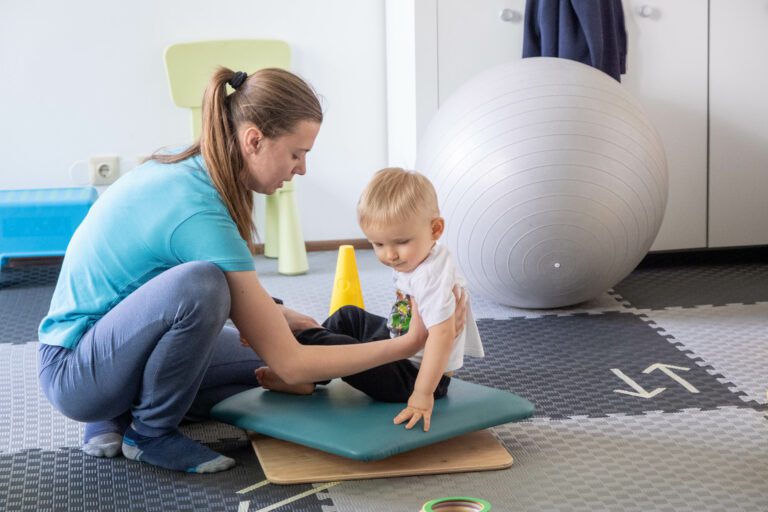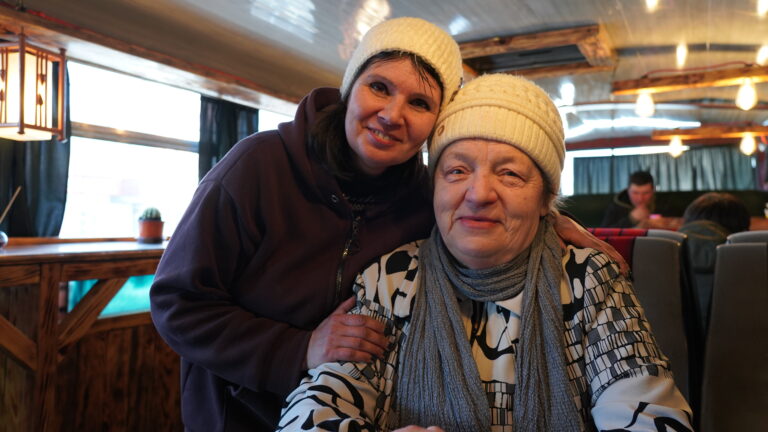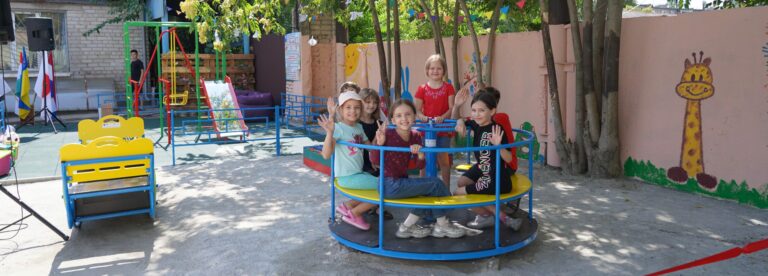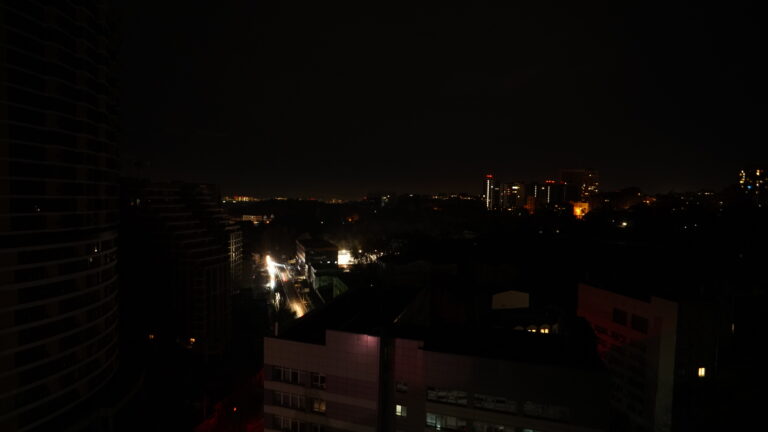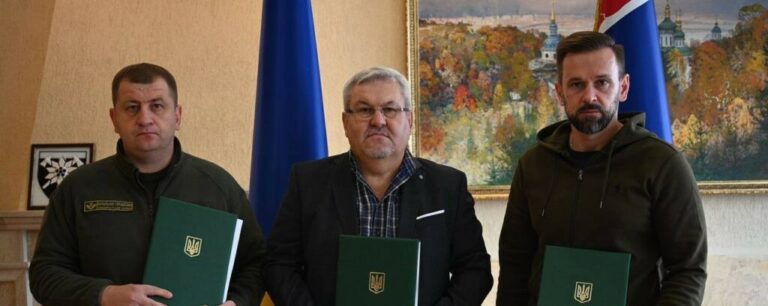Support for refugees on the brink of financial breakdown
The war in Ukraine has been ongoing for one and a half years now, with no end in sight. Millions have fled the country, many of them finding refuge in neighbouring Hungary – a country with a completely different language, strange customs and culture that puts refugees trying to establish their life here in a multitude of difficult situations. They have to cope with a completely new environment with a limited social safety net to rely on. Looking for a way to counter the challenges faced by refugees, Hungarian Interchurch Aid is providing refugees barely scraping by with a new, flexible cash assistance modality.
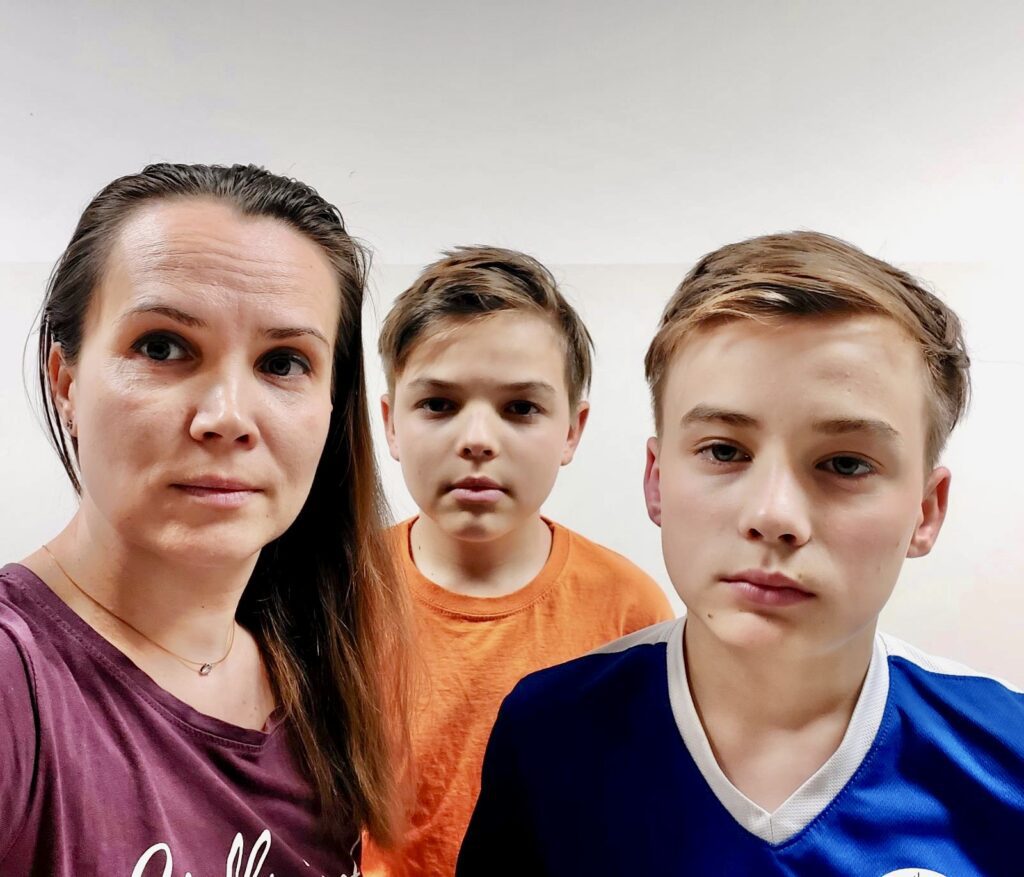

Anna is one of those refugees struggling to get by. On 14 March last year, she and her two boys fled their home close to the frontline in Oleksandrivka, Donetsk Oblast. Arriving in Hungary, they settled in Miskolc where they found accommodation in HIA’s local institution converted to also host refugees. Anna’s children – Roman and Maxim – are currently attending school in Hungary, while also participating in the online classes of their school at home. After their arrival, Anna quickly found work, which seemed to help them sort out their financial situation. However, due to rising double-digit inflation rates Anna’s income alone is not enough anymore to support the family of three.
Based on the international methodology of Multi-Purpose Cash Assistance, HIA has been providing financial help to people in need in Ukraine for some time now, and refugees in Hungary were also able to apply for a one-off instalment to help with challenges in their accommodation situation (deposit, rent, utilities), health (medical check-ups, medication, personal dietary limitations) and education. Seeing the challenges caused by the protracted war, rising cost of living and livelihood problems, HIA has decided to introduce a more regular type of cash assistance scheme to provide support to those seeking refuge in Hungary.
Three types of assistance, one system
Through the new scheme introduced in April 2023 refugees are able to receive monthly instalments for 6 months to improve their living situation and reduce the difficulties they face. It’s a bit different from the previous methodology, because this time instead of cash, beneficiaries receive different types of vouchers. “To be honest, this is not one modality, but rather three, forming a complex system through which we are able to reflect on the nuanced realities Ukrainian families face in this country” explains Ágnes Papp, the humanitarian project manager overseeing the programme.
But how does this look like in reality? “Actual support is always preceded by an assessment of needs, on the basis of which social workers determine the amount and form of cash assistance. Help is available in form of a humanitarian card, vouchers and food stamps. Depending on what kind of help is needed, our social worker can combine these forms to ensure the best possible outcome for the person in need.
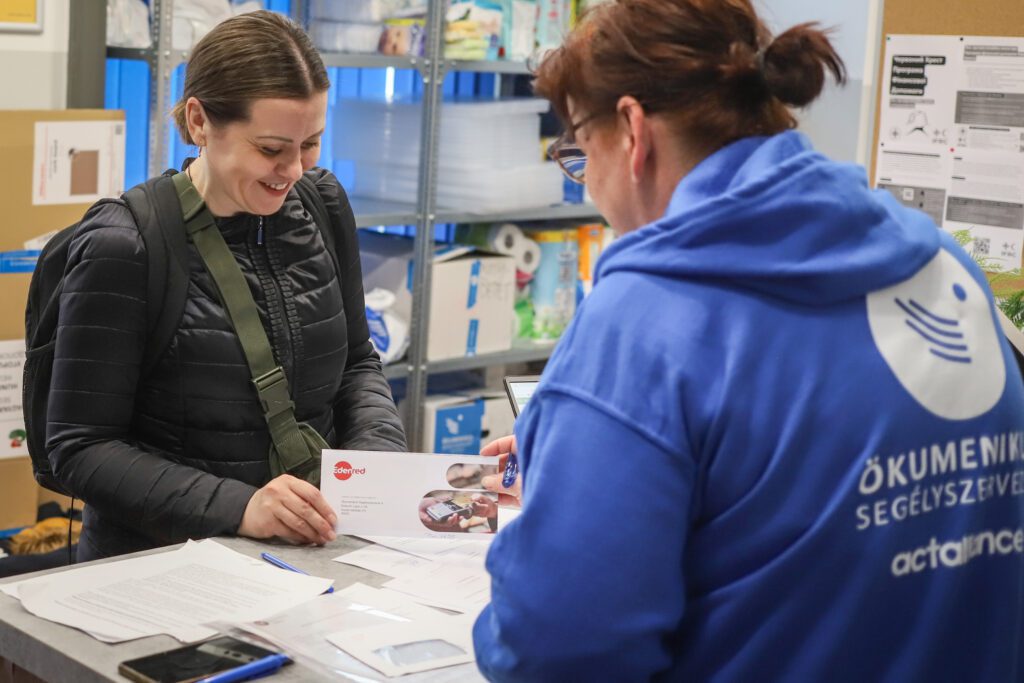

The humanitarian card allows for regular support: it is topped up to HUF 45,000 each month by HIA, can be used universally, even for the online payment of bills. The vouchers are all-purpose as well, to purchase goods generally unavailable through the refugee support system in Hungary, such as medicine, medical supplies, or to replace children’s worn out clothes and shoes. Lastly, the third type of assistance is a type of food stamp, which can only be spent on food in shops and restaurants. The total amount of financial support per refugee cannot exceed HUF 90,000 a month.
Eligible for the voucher scheme are Ukrainian citizens in Hungary who applied for asylum following the outbreak of war in Ukraine February last year, also taking into account the rules and possibilities of each type of assistance. Most of the beneficiaries are located in Budapest, but HIA also provides access to refugees located in the eastern and western part of the country.
It is important to note that the cash assistance is provided on the basis of need. Beneficiaries have either no, or only a very low monthly income, and eligibility for regular support is reviewed on a monthly basis. The majority of refugees have been clients of HIA’s refugee support mechanisms, so there’s a level of trust in both directions, too.
Where the shoe pinches
For a year now, the Support Centre for Ukrainian Refugees (UMTK) has been one of the centrepieces when it comes to HIA’s support towards refugees. The institution located in the heart of Budapest, caring for 746 Ukrainian families who have fled the war. The voucher scheme makes their work much easier: the procurement, transport, packaging and distribution of hundreds of kilos of food and hygiene products every week takes a lot of time for the aid workers. Additionally, not everyone needs the same things – the voucher system is a step forward in this respect: it’s helping refugees wherever their shoe pinches.
Otília Ulicska, the UMTK’s aid worker also emphasises the simplicity and flexibility of the new mechanism: “I am very happy about this opportunity, because instead of standard aid kits, we can help families according to their number and specific needs. Our customers are free to get the things they need – even items we couldn’t provide them with before: dairy and meat products, fresh vegetables and fruit.”
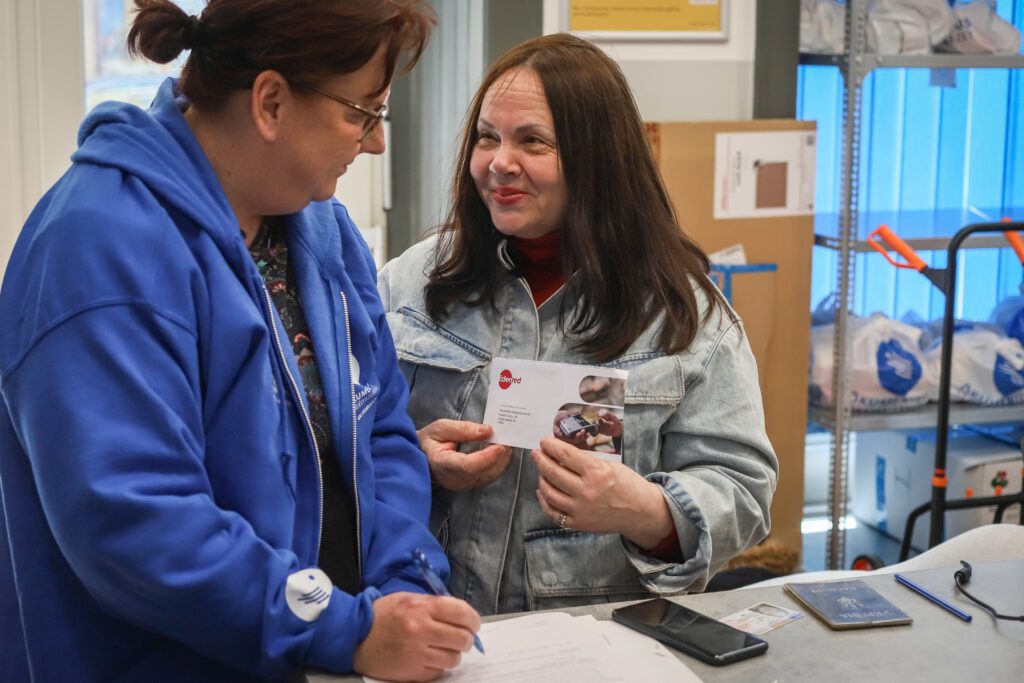

Anna is also glad she can be part of the programme – it is pretty hard to support her family of three under current circumstances. “The vouchers help us to cover our basic needs in all circumstances. We are therefore very grateful for this, as we have had to struggle to stay afloat. I am confident that we can build on this newly gained income security provided by the voucher system to build up an existence, get through this difficult period and – with perseverance – create a better life for ourselves.”
Among the clients of the Suport Centre, Anna’s story is quite typical. While the military-aged male population stayed back in Ukraine, their spouses and children often have to get by minimal income all across Europe. The programme – based on the international cash assistance methodology – mainly aims to support this group, and is being implemented by Hungarian Interchurch Aid with the support of ACT Alliance, a worldwide faith-based alliance of aid organisations. In May, 255 Ukrainian refugees living in Hungary have received humanitarian cards, while since March HIA has provided cash assistance in more than 2000 instances in the country.

